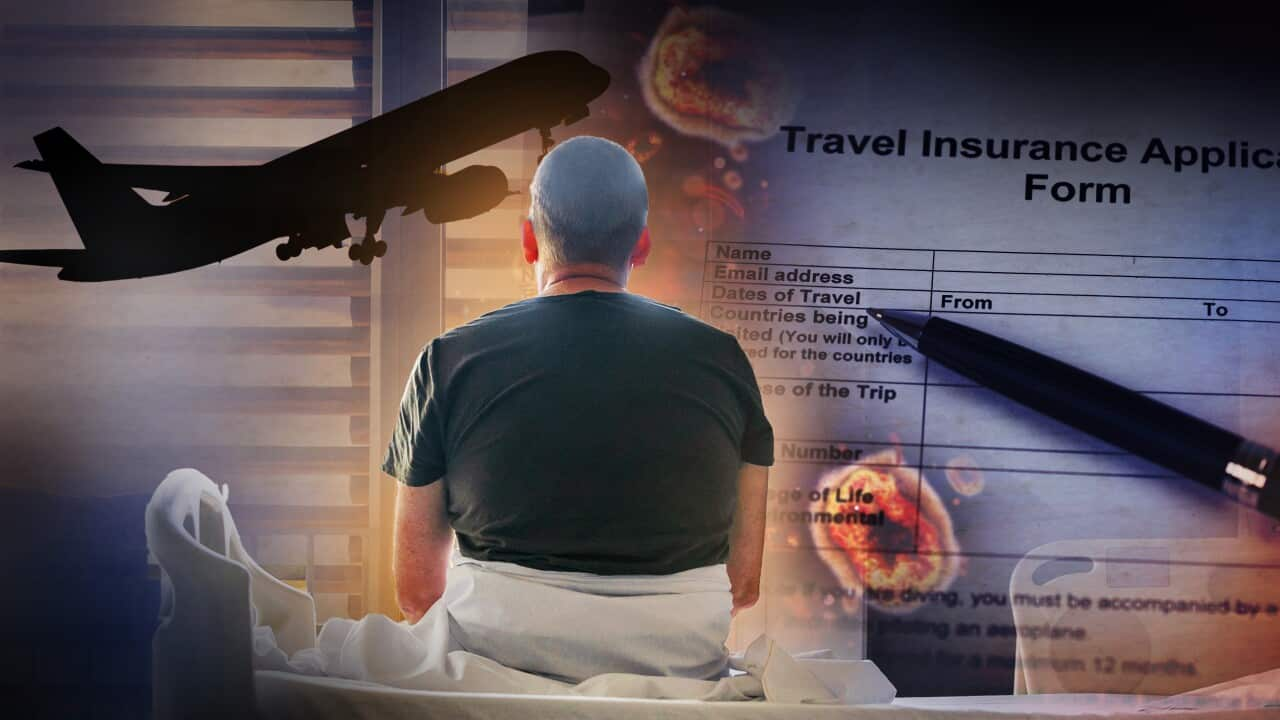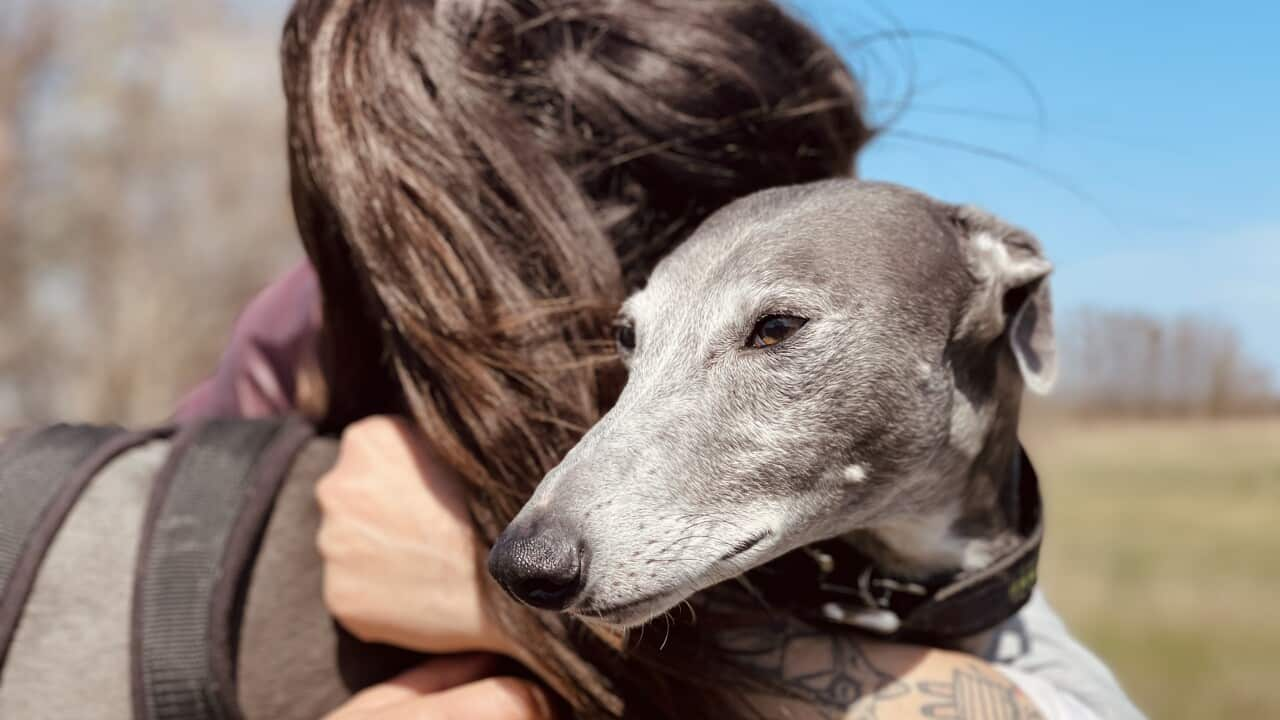Key Points
- Tens of thousands of monkeypox cases have been detected across the world as the outbreak continues to grow.
- Some may be wondering if their travel insurance will cover it after many insurers ruled out COVID-19-related claims.
Tens of thousands of monkeypox cases have been detected across the world as the outbreak continues to grow.
Unlike COVID-19, it hasn't sparked border closures, leaving people in Australia free to take off overseas.
Some may be wondering if their travel insurance will cover them should they fall ill with monkeypox, especially after many insurers ruled out COVID-19-related claims during the height of the pandemic (although many have now released coronavirus coverage options).
Many travel insurers will not cover losses arising from or relating to pandemics or epidemics. Monkeypox has not yet officially been given either of these labels, but insurers will still treat it differently.
Here's what you need to know:
What is monkeypox?
Monkeypox , with symptoms that include, among others, fever, headache, rashes, and lesions that will form a scab before falling off. Symptoms typically begin 7-14 days after exposure.
It can be spread from one person to another by close contact with lesions, body fluids, or material contaminated with the virus, such as bedding or clothes.
Those with the virus are infections from when symptoms appear until lesions have healed and a fresh layer of skin has formed underneath.
Many reported cases have been in men who have sex with men. But the World Health Organization (WHO), medical professionals, and LGBTQI+ advocacy groups have stressed .
There is a monkeypox vaccine and its rollout in Australia has commenced. Those most at risk have been prioritised for the initial phase, with more supply expected to arrive later this year and into 2023.
Where has monkeypox been detected?
A surge in monkeypox infections has been reported since early May outside the West and Central African countries where the disease has long been endemic.
The WHO declared the situation an international public health emergency on 23 July.
More than 35,000 cases in 92 countries, and 12 deaths, have now been reported to the WHO. In Australia, there have been 89 (confirmed and probable) infections.
Almost all new cases are being reported from Europe and the Americas.
Will travel insurance cover monkeypox-related medical expenses?
SBS News has contacted a number of travel insurance brands to confirm what monkeypox-related claims they will cover.
These included Cover-More (which also issues policies under the Flight Centre, Helloworld, NRMA Insurance, Commonwealth Bank, Virgin Australia, Malaysia Airlines, Air New Zealand, Webjet, and Easy Travel Insurance brands), NIB (which has distribution partners including Travel Insurance Direct and World Nomads), Medibank, and 1Cover.
, , and said medical expense claims arising from treatment for monkeypox would be claimable like other medical conditions as per the conditions set out in their policies.
Will travel insurance cover self-isolation expenses?
SBS News also asked these brands whether they would cover self-isolation expenses if a traveller contracts monkeypox and is directed to self-isolate by a medical practitioner or government health authority.
Cover-More and Medibank said these expenses would be claimable as additional accommodation, which would need to be the same accommodation standard as originally booked.
NIB said it does not provide cover for expenses in relation to self-isolation or quarantine.

Australia's monkeypox vaccine rollout has commenced, with high-risk groups prioritised for the jab in the initial phase Source: AAP, EPA / Cristobal Herrera-Ulashkevich
What else to be aware of
It's important to read a travel insurance policy's product disclosure statement (PDS) before purchasing cover so you are aware of what exactly is claimable and any exclusions, comparison site Canstar's group executive of financial services, Steve Mickenbecker, said.
For example, NIB has a general exclusion in its policy that states it will not cover a "loss arising from an epidemic, pandemic or World Health Organization (WHO) declaration of a public health emergency of international concern." The WHO has declared the latter over monkeypox.
This general exclusion does not apply to, among others, medical expenses and hospital compensation. But NIB said it meant claims for holiday cancellation or deferment costs "may not be covered".
"Some will cover for an event like monkeypox or COVID but only for medical expenses," Mr Mickenbecker said.
"Some cover for cancellation or interruption if it's you and your travel companion, or a family member or business partner, and some won't cover these events at all."
Mr Mickenbecker said PDS' can be long and convoluted, and recommended contacting the insurer about any points of confusion directly before purchasing a policy.
A traveller who contracts monkeypox and needs to make a claim should contact their insurer as soon as possible, he said.
"Your policy will state how quickly you have to do that," he said.
He said this should be done before incurring any costs because insurers will explain what you're entitled to and what you need to do to ensure your claim is approved.
"Keep all the records that you can... and all of the receipts for costs incurred," he said.
Correction: A previous version of this article stated that travel insurer 1Cover did not provide cover for monkeypox-related claims after 9 July, 2022 . This information was provided by 1Cover, who has since clarified that these claims will be accepted, but this may change if monkeypox is declared an epidemic or pandemic.
- with AFP











